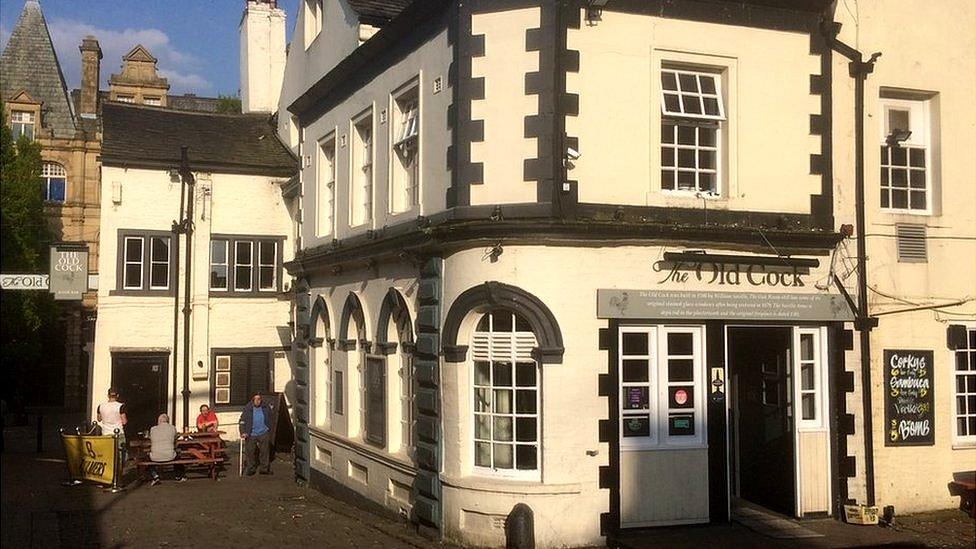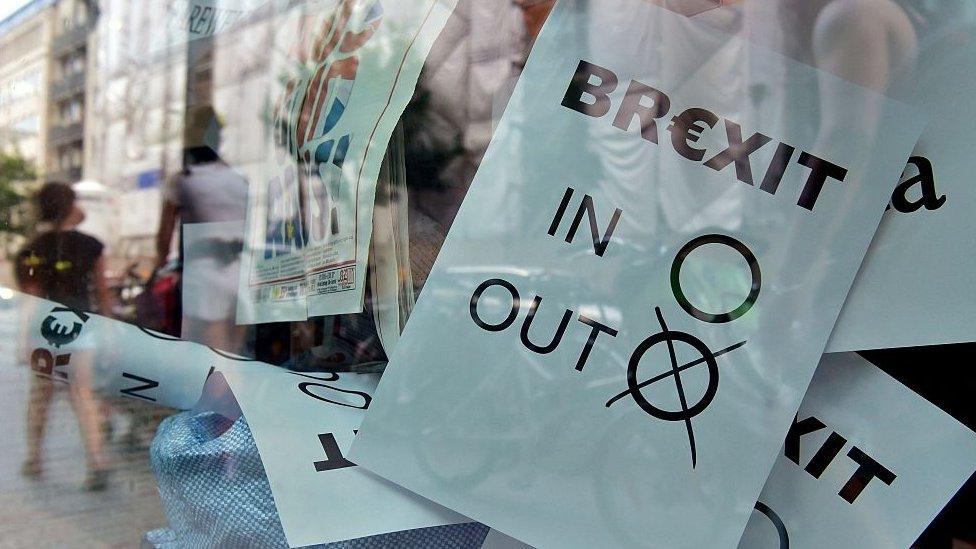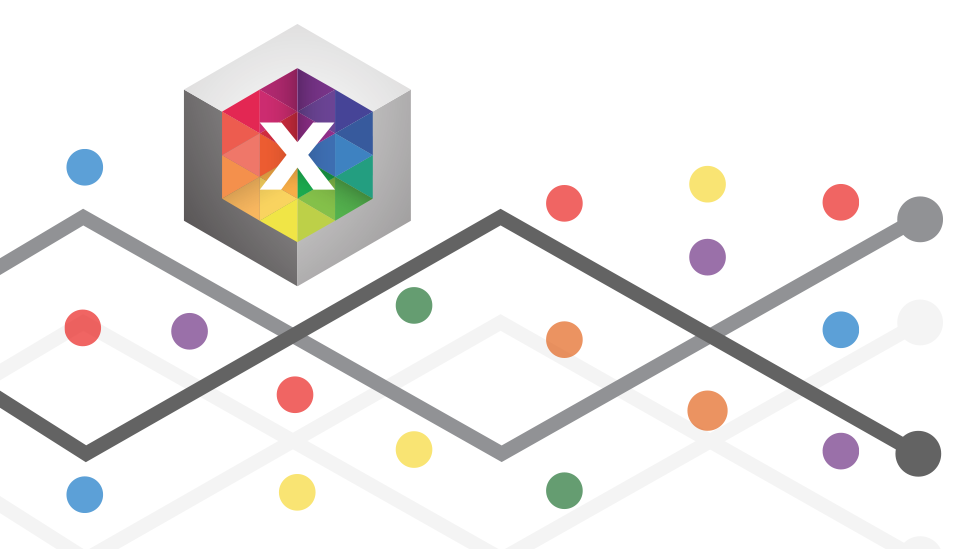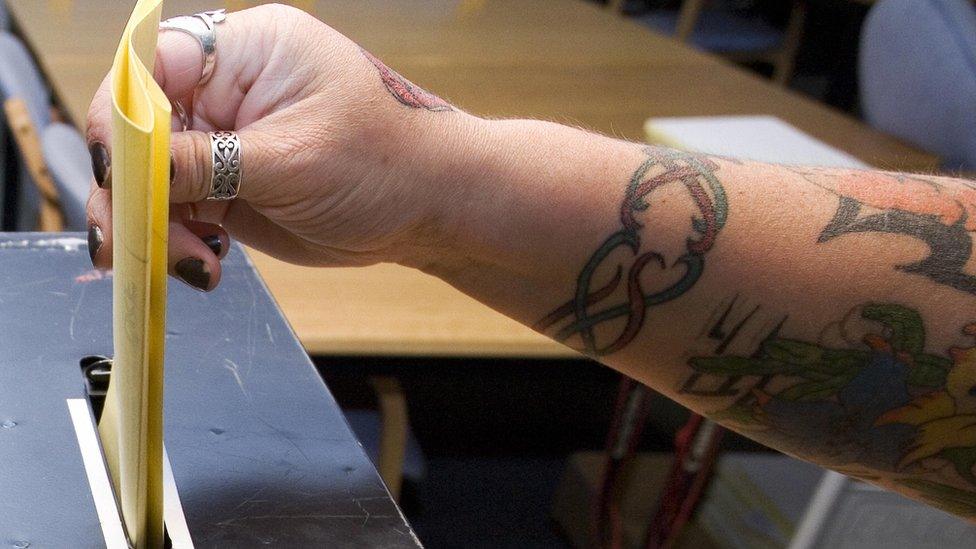Nick Robinson: How will Leave voters vote?
- Published
Leave voters explain to Today's Nick Robinson who they would like to see lead Britain out of Europe
When the campaigning is over, the leaders' buses have been parked and the votes counted, one question is sure to be asked: "What on earth did they mean by that?!"
Politicians, pollsters and pundits like me spend our lives trying to delve into the psyche of those curious folk who, unlike us, are not overgrown election trainspotters who spend hours studying politicians' speeches, analysing their manifestos and nerdily swapping election trivia.
Getting into the heads of voters is more important than ever now.
Firstly, few saw recent election upsets - Cameron's majority in 2015, the Leave vote in the EU referendum or Trump's victory - coming.
Secondly, that vote for Brexit shows signs of the glue that used to attach voters to the parties they may have supported traditionally, further dissolving.
I have been talking to a group of voters in Halifax who backed Leave in the EU referendum, to hear what is on their minds and how they are going about deciding who, if anyone, to vote for.
The people I spoke to were picked by the pollsters Ipsos MORI for the first of my Election Takeaways, which will explore how different types of voters in different parts of the country are thinking.

Ordering the nation's favourite dish - a curry - helped to keep the campaign discussion flowing
What I wanted to explore in Halifax is whether passionate Leavers feel they need to vote UKIP in the general election to ensure that Brexit is delivered.
Or would they opt for Conservatives because they believe they will live up to their pledge deliver the "best possible deal".
Or will their choice be Labour because they believe the job has been done and the big priorities now are the old ones - jobs and fairness at work, the state of the NHS and schools.
Or indeed will be they be putting their X beside any one of the other parties for any one of a series of other reasons.
So it was that I gathered seven voters in a room above the Old Cock Inn in Halifax, where, incidentally, the Halifax Building Society was founded 164 years ago.
To help the conversation flow, we ordered in the nation's favourite - a curry takeaway.
Immigration fears
Tracy [we've chosen not to use any surnames] told me that, having once voted for Margaret Thatcher and then for Tony Blair, she was now - for the first time - going to be voting for UKIP as she did not trust any of the mainstream parties to deliver on both Brexit and a halt in immigration.
"I think Theresa May is dragging her heels," she told me.
"I don't think her heart is in leading Brexit. I'll believe it when I see it. I think she's leading us a merry dance."
Anthony, on the other hand, was preparing, reluctantly, to vote Tory for the simple reason that he has lost faith in Labour.
"I think we need somebody who does not exist at the moment, somebody who's got a bit of backbone," he explained.
"We need somebody who is a realist, somebody who is going to listen to the people and take what the people have spoken to Europe."

Polls showed that the EU referendum was going to be a close race
The unheard slogan
Nicola and Ashley backed Labour values and policies but were very unsure about whether they could vote for Jeremy Corbyn.
Although Irfan was also a firm Labour backer, only Kerry was certain that Mr Corbyn was the man to be prime minister:
"He's definitely the most down-to-earth, the biggest realist out of them all," she says.
Most believed that no-one really spoke for the working class - although Kerry again thought Mr Corbyn was closest - and there was the usual consensus that politicians could not be trusted.
The group argued that they wanted a strong and trustworthy leader but could not think of anyone who fitted the bill except for John who thought that Nigel Farage would do it best. He is, however, planning to vote Tory.
What was most striking is how little of the election noise had cut through to them.
The prime minister's relentlessly repeated slogan - "strong and stable" - had not been heard by any of this group.
As for the promise of an energy price cap they saw that as a Labour idea - which, of course it was - but had no idea that Theresa May had tried to take it for herself.
How people think
What, you might ask is the value of talking to so few people and what is the point of using pollsters to choose them.
Opinion polls can tell us quite a lot and are more often right than wrong.
They may not have got the result of a very close general election contest right in 2015 or the referendum in 2016, but they did get the results spot-on in France and the Netherlands as well as predicting the Trump/Clinton vote shares pretty precisely.
Even in the referendum they showed a close race, with Leave often ahead.
What pollsters call focus groups - chatting at length to a group of voters - can put flesh on the bones of those headline findings. They certainly cannot tell you the result in any constituency, let alone in the country as a whole. They can explain the "why" which underlies the "what" and so help explain what makes voters vote in the way they do.

Ben Page is head of leading market research company, Ipsos MORI. Focus groups can put flesh on the bones of headline findings
Ben Page boss of Ipsos MORI says: "What focus groups tell us is why people think things and how they think about things.
"It doesn't tell us how many people think something. But without that, you've got really no idea what sort of questions to ask in large structured surveys that should, well conducted, give us reliable answers."
Next week I'll be in another town, this time talking to middle-class Remain voters. Will they look to back a party that gives them a chance of a second referendum or which pushes for a particular deal, or will they conclude that the referendum is over so it's time to move on?
I'm looking forward to discovering what I can take away from my next Election Takeaway.
You can watch more of Nick's Election Takeaway on the BBC News Channel this weekend at 14:30 BST on Saturday and 10:30 BST on Sunday.
- Published19 December 2017

- Published2 May 2017
- Published2 June 2017
